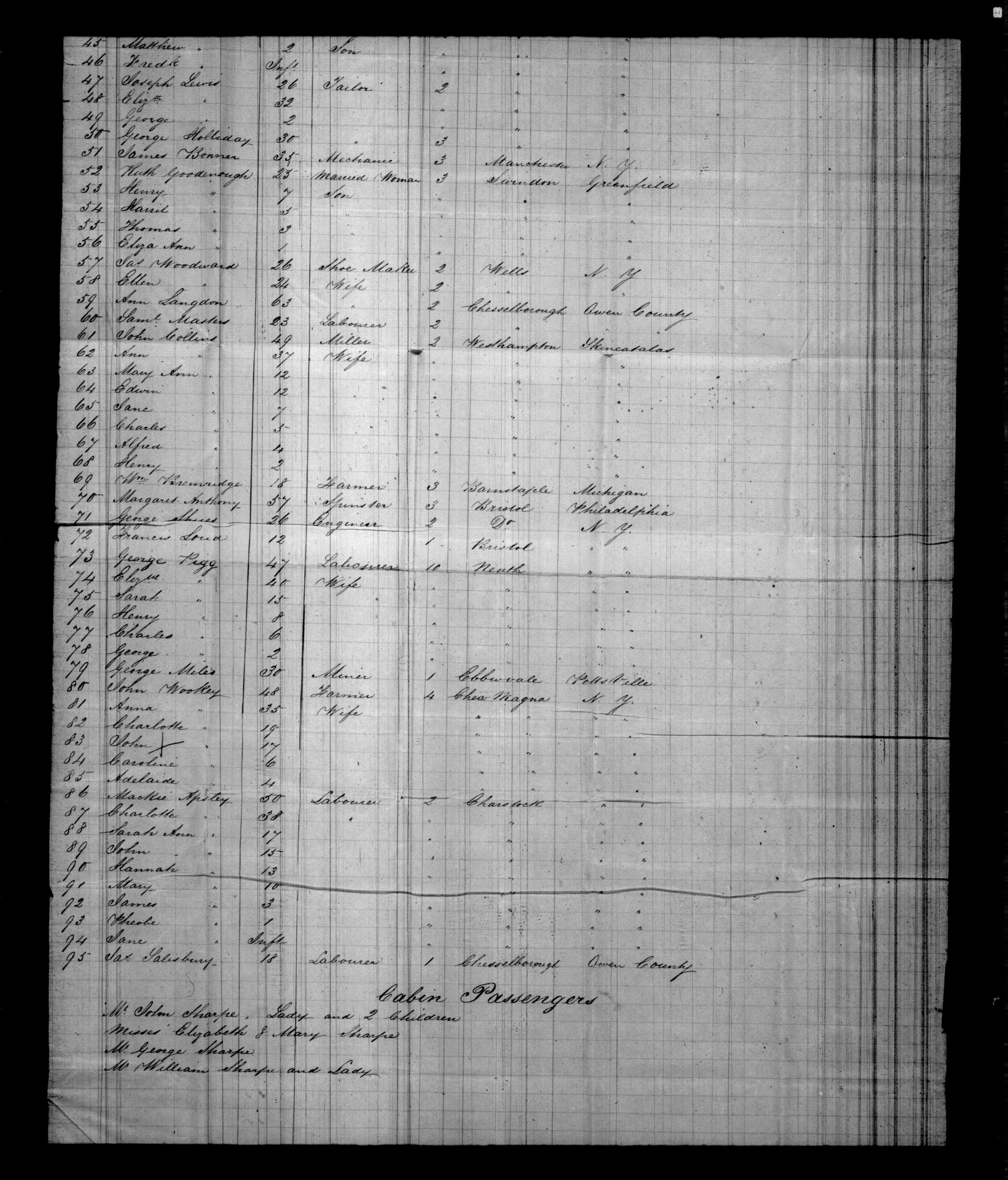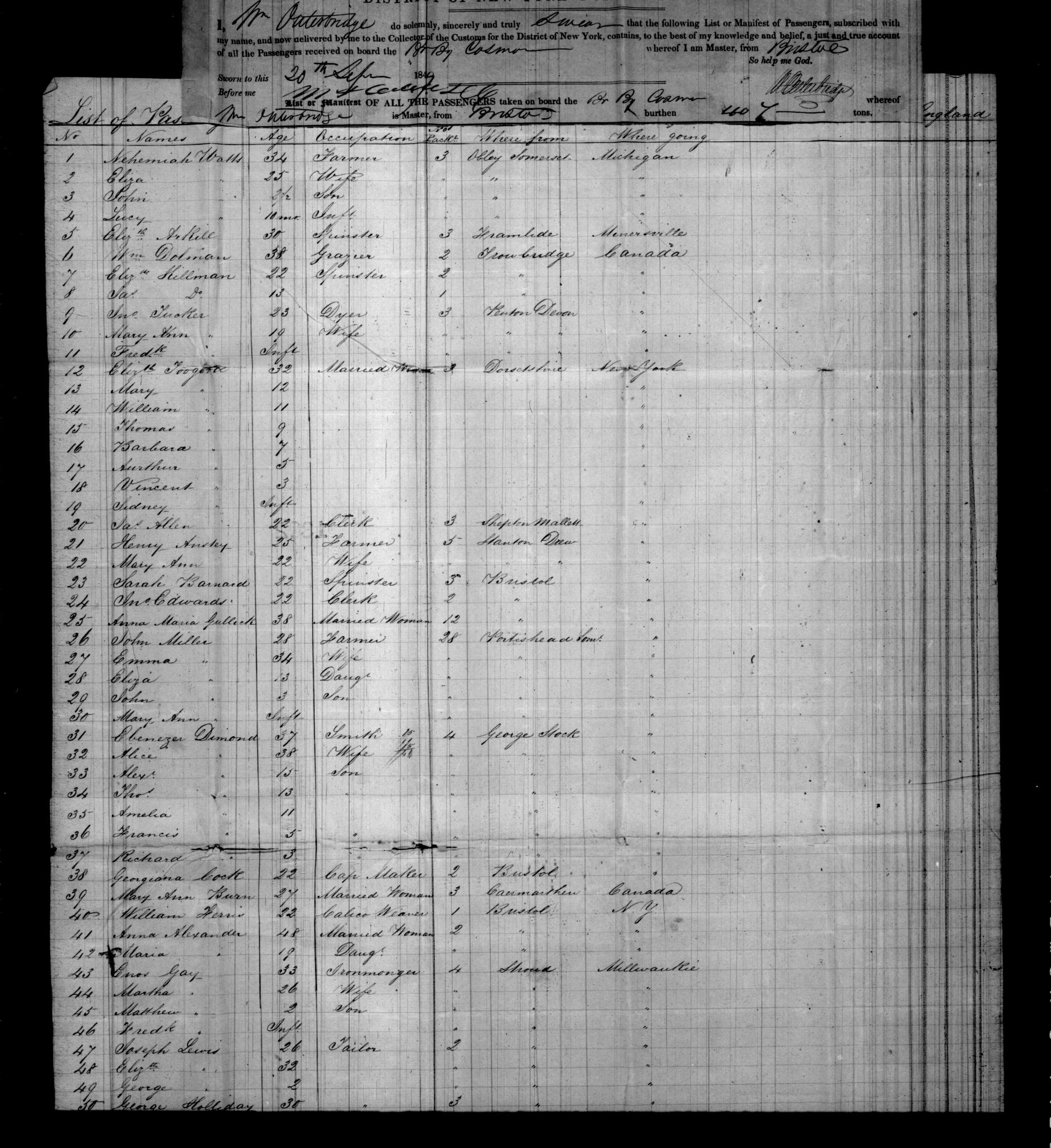Poor law unions were collections or groups of parishes brought together to administer poor relief. Earlier ‘unions’ were refered to as ‘incorporations’ and some of these existed until the 1860s (which is why for some areas there are no correspondence until the old incorporation was dissolved and the new union organised). The Victorian poor law was predicated on the ‘workhouse test’. This is where poor relief would be offered via the ‘deterrent workhouse’, designed to be an institution of last resort.
Workhouses (to supply indoor relief) were set up under the New Poor Law of 1834. They were designed in as repulsive a way as possible, to try to put people off from applying for help.
The Poor Law Union (an amalgamation of parishes) was run by an elected board of guardians with representatives from each parish, together with ex officio members. Indoor relief in workhouses replaced outdoor relief (money or goods), and workhouses were made repellent to encourage the able-bodied to maintain themselves and their families outside. [Source: NationalArchives.gov.uk]
In 1833, the year before the passing of the Poor Law Amendment Act, the Colonial Land and Emigration Commissioners (CLEC) were set up to manage the programme of emigration to Britain’s colonies (Canada, Australia, New Zealand etc.). Under the new regime, some emigrants could qualify for a free passage if they were under forty, capable of labour, of good character, having been vaccinated against smallpox, and from occupations such as agricultural labourers, shepherds, or female domestic and farm servants. Young married couples, preferably without children were viewed as the ideal candidates. Assisted passages were also available with less stringent restrictions to healthy able-bodied labourers whose moral character could be vouched for. Workhouse inmates, however, or those in regular receipt of parish relief, were explicitly excluded from the CLEC schemes. [Source: poundpuplegacy.org/node/21733]
Apsey Declaration of Emmigration
Malachi and Charlotte had a difficult life in England. Malachi was one of the many working poor. Apparently, the economic conditions of the time left many able-bodied people with little to no jobs. They required help from the Poor Law Union (our equivelent to Welfare).
In 1838, Malachi was working and received nine shillings in wages a week and liquor (cider), paid one shilling in rent, and had a potato ground worth tenpence. He was being given 8 pounds of bread a week from the Poor Law Union, reduced from 16. At that time, he had 5 children. Three were under the age of 10 (Sarah Ann, 6; John, 4; Hannah, 2) and two were older than ten (Caroline, 16 and Edmund, 14). One of the children was recommended to go to the workhouse. I believe it to be Caroline because Edmund shows in the 1841 census as a man servent and Caroline is not listed living in the area.
In a letter dated Dec. 12, 1848, Malachi and family are given permission to be a part of the Poor Law Emmigration to Canada. Phebe is listed as an infant under 1 year old. Therefore, she cannot be the Phebe that was born in 1841.
Records show the Apsley family from Chardstock sailing into New York from Bristol England on board the Cosmo on Sept. 20, 1849, so something must have affected their plans to emigrate to Canada. Unknown to the writer of the Poor Law letter of Dec. 12, 1848, Charlotte was pregnant with another child. Jane was born and baptized 8/5/1849. The family left England shortly after.

~~~~~
The following are letters written to the Chardstock Overseer of the Poor. It shows interesting information about the economic situation of the times and what led up to our Ancestors leaving England. Malachi is specifically mentioned in many of them.
Poor Law Union 1837 Sept 9
Poor Law Union 1838 Apr 21
Poor Law Union 1838 Aug 3
Poor Law Union 1839 Mar 15
Poor Law Union 1841
Poor Law Union 1848 Dec 12
Poor Law Union 1848 Dec 16
Poor Law Union 1848 Jan 10
Poor Law Union 1848 Oct 1 – 31
Poor Law Union 1848 Oct 14
Poor Law Union 1850 Apr 8

